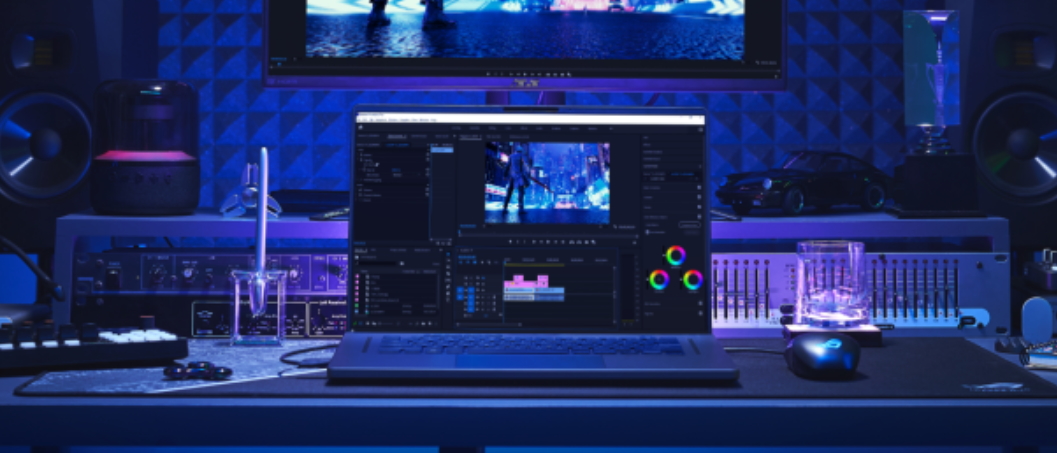TechRadar Verdict
Pros
- +
Slimline, portable design
- +
High-end gaming performance
- +
Attractive display and speaker system
- +
Lots of customization features
Cons
- -
Expensive
- -
Modest battery life
- -
720p webcam
Why you can trust TechRadar
Two-minute review
Here is the Asus ROG Zephyrus M16 (2022) configuration sent to TechRadar for review:
CPU: Intel Core i9-12900H 2.5GHz (14-core, 24MB cache, up to 5GHz)
Graphics: Nvidia GeForce RTX 3070 Ti Laptop (8GB DDR6)
RAM: 32GB DDR5, 4800MHz (16GB onboard, 16GB SO-DIMM)
Screen: 16.0-inch, WQXGA (2,560 x 1,600), IPS, 165Hz refresh, 3ms response
Storage: 2TB M.2 NVMe PCIe 4.0 SSD
Ports: 1x Thunderbolt 4, 2x USB 3.2 Gen 2 Type-A, 1x USB 3.2 Gen 2 Type-C, 1x HDMI 2.0b, 1x 3.5mm Combo Audio Jack, 1x Gigabit Ethernet, 1x card reader (microSD)
Connectivity: Wi-Fi 6e, Bluetooth 5.2
Camera: 720p FaceTime HD webcam
Weight: 4.4 pounds (2.0kg)
Size: 13.98 x 9.57 x 0.78 inches (355 x 243 x 19.9mm)
We liked the 15.6-inch Zephyrus M15 that we reviewed a couple of years ago, which provided good gaming performance and an attractive slimline design at a competitive price. That model was succeeded by last year’s 16-inch Asus ROG Zephyrus M16, which has now received a rapid update with this new 2022 edition.
The Asus ROG Zephyrus M16 (2022) is a little larger than its predecessor, measuring 19.9mm thick and weighing 2.0kg, compared to 18.9mm and 1.9kg for the M15. That’s still a good weight for a powerful 16-inch laptop such as this, though, so you shouldn’t have too much trouble carrying it with you when you need to leave home.
And when it comes to gaming performance, the Zephyrus M16 leaves its predecessor trailing in its wake. This 2022 model now steps up to a 12th generation Intel Core i9-2900H processor, which boasts no less than 14 processor cores, which includes eight ‘efficiency’ cores that run at 3.8GHz for less demanding tasks, and six ‘performance’ cores that can hit 5.0GHz for gaming and other high-end tasks.
That’s backed up by an Nvidia GeForce RTX 3070 Ti Laptop GPU, and an attractive 16-inch ‘Nebula’ display with 2,560 x 1,600 resolution, 16:10 aspect ratio and 165Hz refresh rate, which provides a really crisp, colorful image.
The display also supports Dolby Vision for games and video, and the M16 houses a six-speaker sound system that supports Dolby Atmos too. The built-in speakers do provide plenty of volume, and sound attractively full on mids and higher frequencies. The bass is a little thin, though, so it’s still worth using a good set of headphones or external speakers if you want to hear some big booming explosions during your online adventures.
The Asus Zephyrus M16 is well connected, with HDMI for an external display, along with one Thunderbolt 4 and one USB-C port, both of which also support DisplayPort video output as well. There are two USB-A ports, a combo audio connector, and a micro-SD card reader. The M16 includes the latest Wi-Fi 6E wireless technology, but there’s an Ethernet port as well if you prefer a lag-free wired connection for your gaming sessions.
Needless to say, this high-end gaming laptop is pretty expensive, with prices for the Intel Core i9 version of the Asus Zephyrus M16 starting at $2149.99 (approx. £1765).
To be fair, that’s still in line with rivals such as the Gigabyte Aorus 15P, although it’s disappointing to see that Asus only provides a rather grainy 720p webcam that seems a bit out of place in such a high-quality laptop.
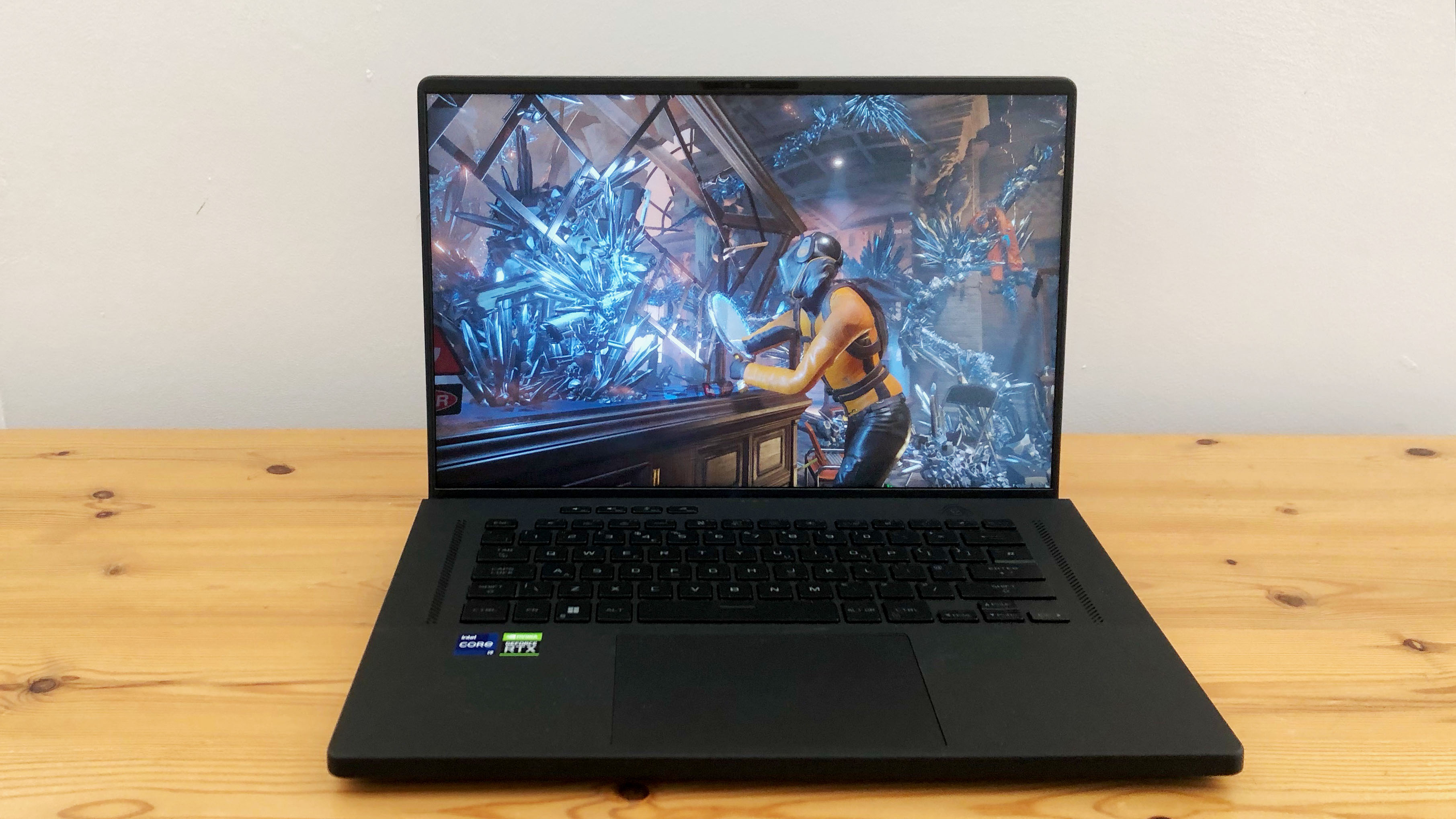
Price and availability
The 2022 edition of the Asus Zephyrus M16 is available with 12th generation Intel i7 and i9 processors, and a variety of Nvidia GeForce RTX graphics cards.
Unfortunately, you can’t buy it directly from Asus, so you’re left to scour various online retailers to find a model with the specification you require. We reviewed the i9 model, which uses an imposing 14-core i9-12900H processor and starts at $2,149.99 (around £1,750, AU$3,000) with 16GB RAM, 1TB solid-state storage and Nvidia GeForce RTX 3070 Ti Laptop GPU with 8GB video memory.
However, the main model currently on sale in the UK doubles up to 32GB memory and 2TB SSD, bringing the total to a weighty £2,598.98 (around $3,500, AU$4,700).
It’s also worth noting that last year’s model, with 11th gen processors, is still widely available online, so you should double-check the specification before breaking out your credit card. And, at the time of this review, Asus’ Australian web site hadn’t yet updated the M16 at all, and was still selling the older model with 11th gen processors and Windows 10 Home.
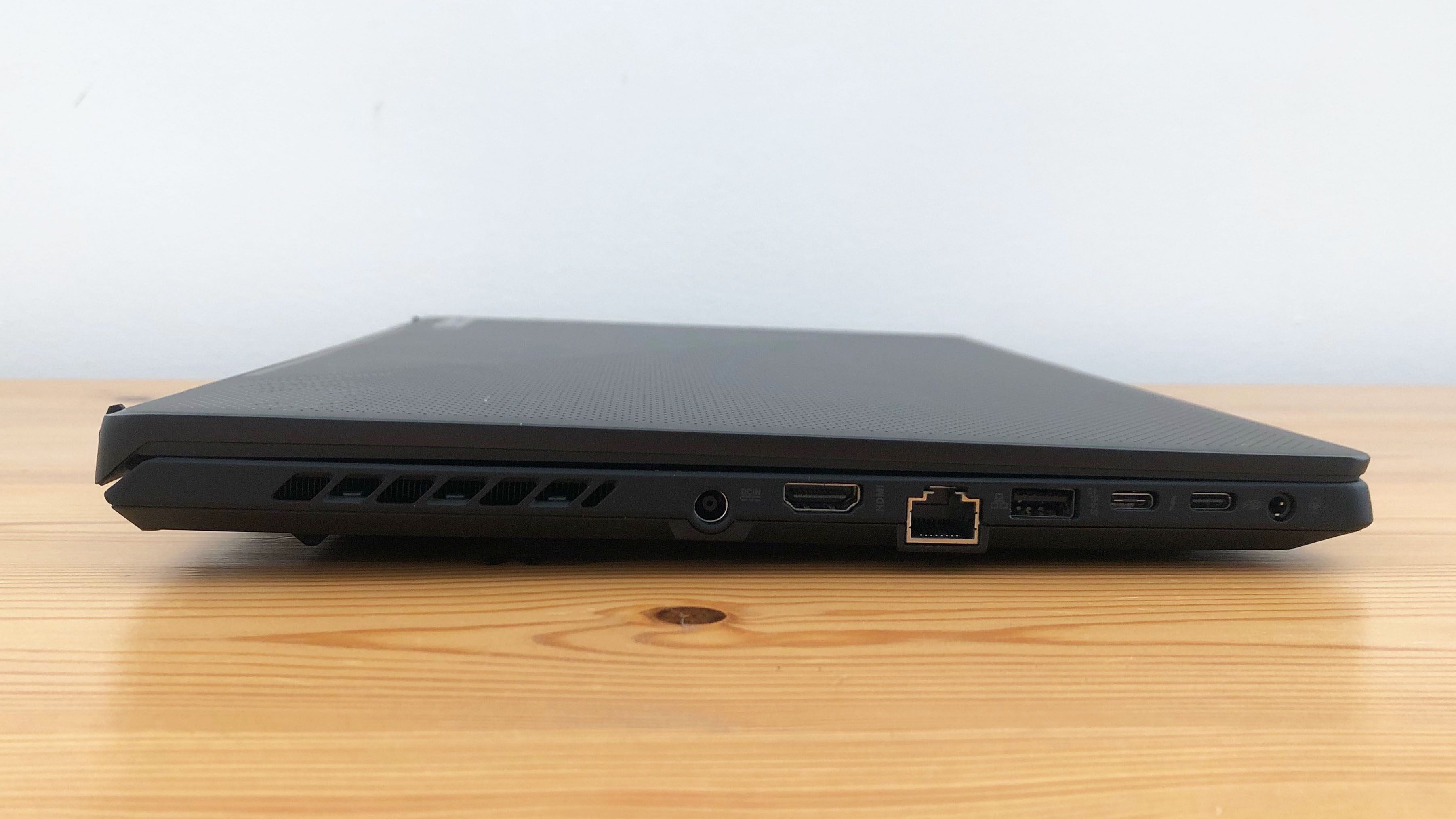
Design
The Asus Zephyrus M16 isn’t quite as sleek and stylish as the earlier M15. In fact, it initially looks rather sombre, with a matte-black casing and rigidly rectangular design that seem almost boringly functional.
But Asus gets the basics right, keeping the weight down to just 2kg, despite the powerful hardware and cooling system concealed inside. The narrow bezels around the screen also help to keep the size down, and at 355mm wide, 243mm deep and 19.9mm thick, the overall size of the 16-inch M16 is actually slightly smaller than that of the 15.6-inch M15.
And, of course, the Asus Zephyrus M16 has the obligatory flashing lights and eye-candy, required of a good gaming laptop. As well as providing a variety of lighting effects for the keyboard backlight, Asus’ Armoury Crate app also allows you to select a number of wallpaper images that have animated lighting effects, and can sync lighting with other Asus devices such as its gaming keyboards and mice.
The keyboard itself feels firm enough to cope with some pressure during hectic gaming sessions, but the keys also feel smoothly responsive when typing, so you can get some more serious work done when you need to. And, along with the usual set of Function keys, the M16 has a small set of four additional keys that you can program using the Armoury app.
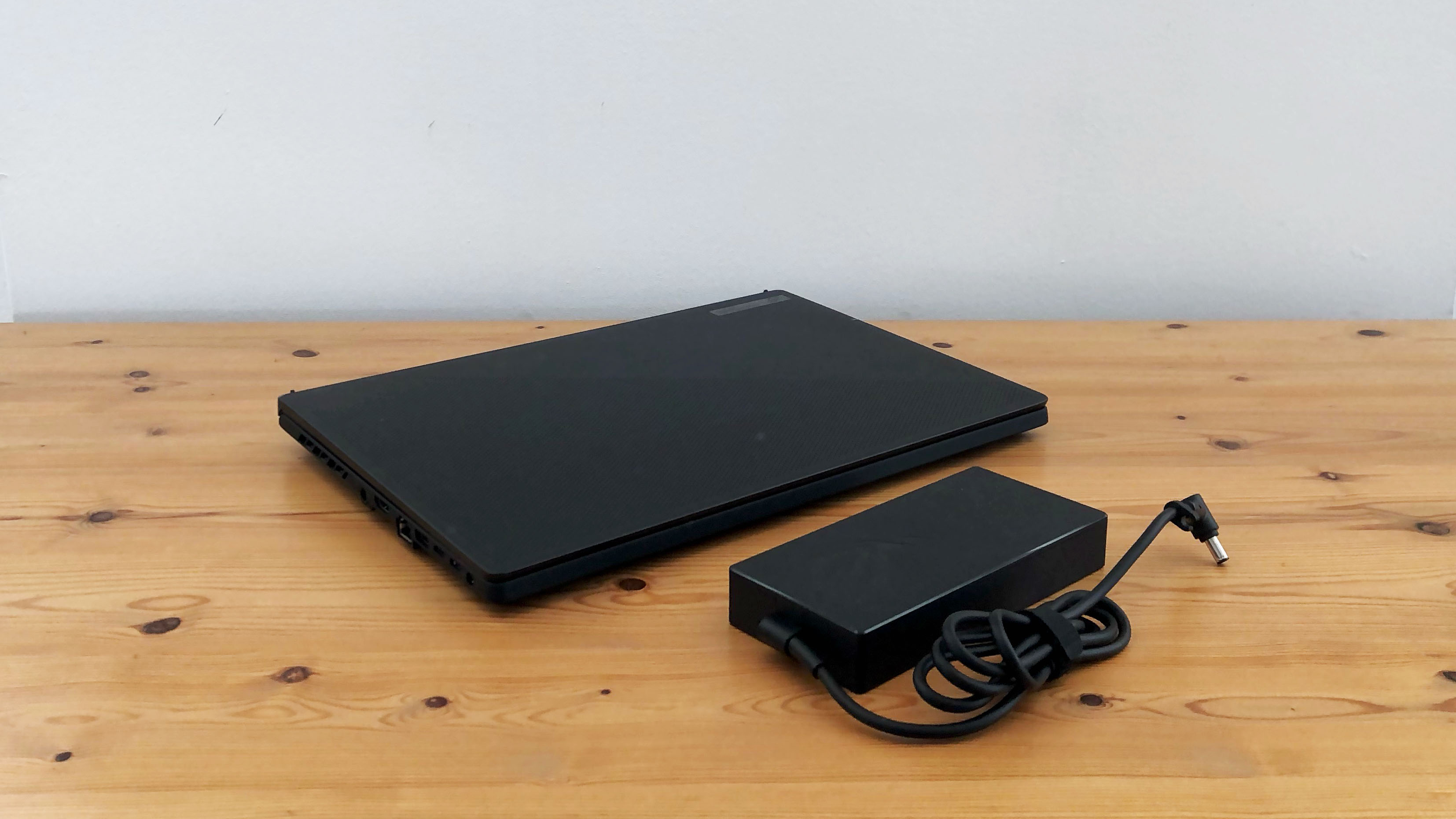
Performance
Here's how the Asus ROG Zephyrus M16 (2022) performed in our suite of benchmark tests:
3DMark: Night Raid: 50,790; Fire Strike: 23,656; Time Spy: 10,299
Cinebench R23 Multi-core: 18,030 points
GeekBench 5: 1,964 (single-core); 14,340 (multi-core)
PCMark 10 (Home Test): 8,020 points
PCMark 10 Battery Life: 4 hours and 12 minutes
Battery Life (techradar movie test): 7 hours and 2 minutes
Total War: Three Kingdoms (1080p, Ultra): 80 fps; (1080p, Low): 281 fps
Metro Exodus (1080p, Ultra): 72 fps; (1080p, Low): 200 fps
The Asus Zephyrus M16 (2022) is certainly expensive, but its combination of 14-core CPU and RTX 3070 Ti laptop GPU really delivers the goods when it comes to gaming performance.
Metro Exodus breezes along at 72fps even on the game’s ‘Ultra’ graphics settings running at 1080p resolution, while Total War: Three Kingdoms fared even better at 80fps on ‘Ultra’. And, as confirmation, the PCMark 10 test suite recorded a score of 8020, and pronounced the M16 to be a top-tier ‘premium gaming PC’.
It did, admittedly, slow down a little when stepping up to the display’s maximum 2560x1600 resolution, with Three Kingdoms falling to 46fps on ‘Ultra’. However, Metro: Exodus on ‘Ultra’ kept up a very respectable 54.5fps and it wouldn’t take too many graphical adjustments to get those scores back up to 60fps, so this really is a no compromise gaming laptop that can still fit into a backpack when you need to hit the road.
The display’s 165Hz refresh rate at 3ms response time works well too, providing a crisp, sharp image for the chaotic eye-candy of Lost Ark (even if it can’t do anything to make the games tedious levelling-up quests any more interesting). Admittedly, there were moments when the cooling fans could be heard right across the room, but that’s because we did allow the Asus Zephyrus M16’s fans to run in ‘turbo’ mode during our tests for maximum cooling.
The fans do their job, though, and we were impressed to find that the base of the laptop never became more than mildly warm even during the most demanding gaming tests. The Armoury app also allows you to configure the performance of GPU and fans to suit different tasks and environments. As well as the ‘turbo’ mode that we used for testing, there’s a ‘silent’ mode that reduces CPU and GPU performance in order to run as quietly as possible at night or when travelling. There’s also a more balanced ‘performance’ mode, and even a manual option that allows you to create your own performance profiles.
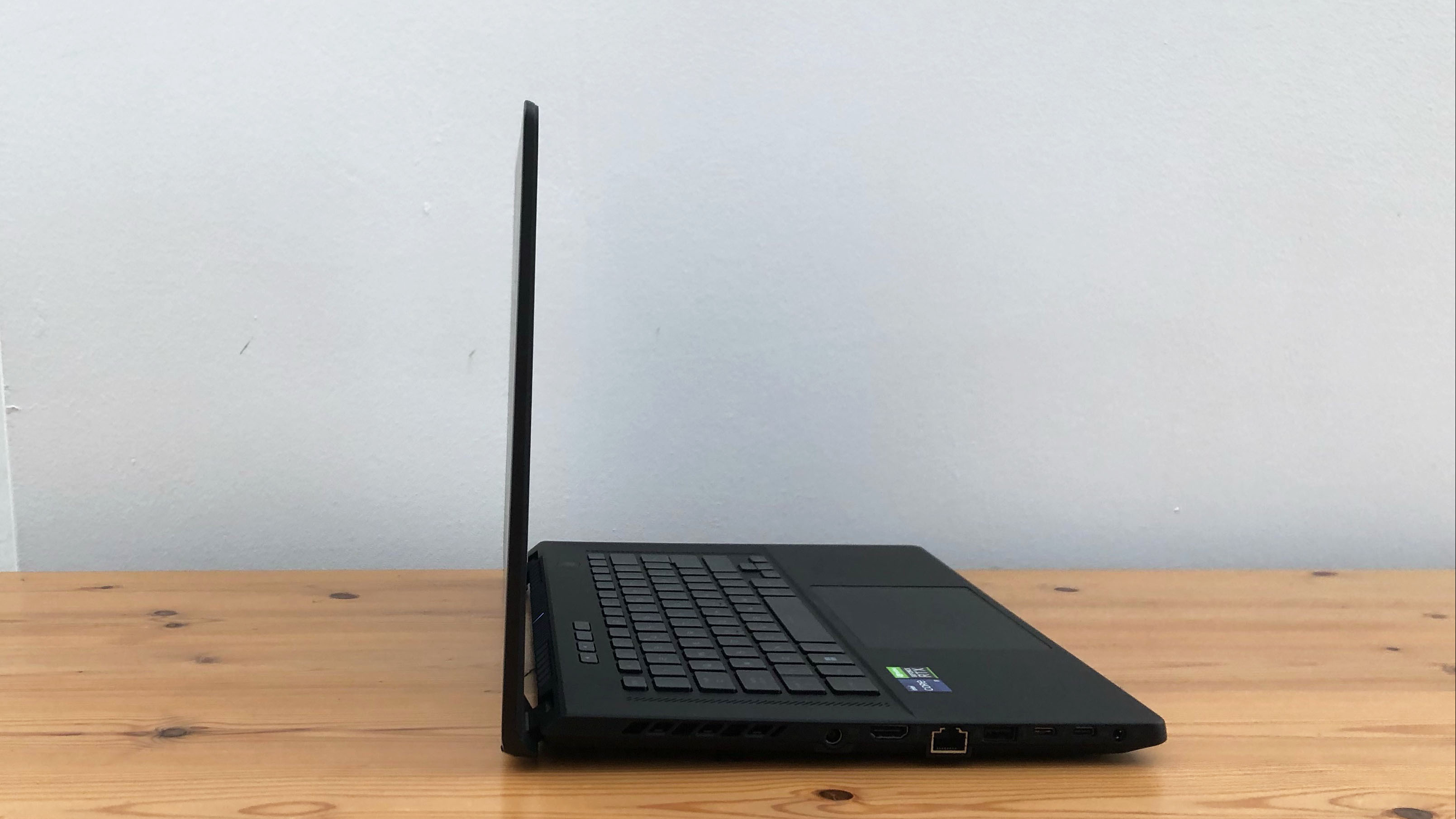
Battery
The downside of the Asus Zephyrus M16's impressive graphical performance is rather lackluster battery life.
The Asus Zephyrus M16 lasted a mere four hours and 12 minutes when running the PCMark 10 battery test, and even our less demanding video test barely managed to reach the seven hour mark.
So while the M16 is light enough to carry around when you’re travelling, its power-hungry hardware will only manage a few hours of entertainment on long journeys.
Buy it if...
You’re an eSports expert
Cruising through our most demanding gaming tests at well over 70fps, the Asus Zephyrus M16 is a no-holds-barred gaming laptop that will allow you to keep up with your online competition.
You want control
The Armoury Crate app provides a wide range of options for fine-tuning CPU and GPU performance, along with the fans and cooling system, and some fancy ‘Aura’ lighting effects.
You need portability
Despite its heavyweight hardware, the Asus Zephyrus M16 weighs just 2.0kg, so it’s a great option if you need a laptop that you can go travelling with.
Don't buy it if...
You're a casual gamer
The performance of the Zephyrus M16 is certainly impressive, but it’s total overkill for casual gamers who just like a spot of Fortnite at the weekends.
You need all-day battery life
The Asus Zephyrus M16 is light enough to carry with you when you’re travelling, but battery life is a little disappointing, lasting barely four hours for gaming and seven hours for video playback.
You're a streamer
Despite its high-end price and specification, the M16 bizarrely opts for a cheap and cheerful 720p webcam that provides only modest image quality.
- These are the best gaming laptops of 2022
Cliff Joseph is a former Editor of MacUser magazine, and a freelance technology writer with 30 year’s experience in the industry (and old enough to remember when Apple was close to going bust…).
His first job involved using Macs for magazine sub-editing and typesetting, which led to the realisation that these computer-thingies might actually turn out to be useful after all. After a few years specialising in the Mac side of the market, he went freelance and embraced the wide world of digital technology, including Windows PCs, digital audio and hi-fi, and networking. Somewhere along the line he also developed a bit of a gaming habit and has stubbornly waved the flag for Mac gaming for far too many years.
